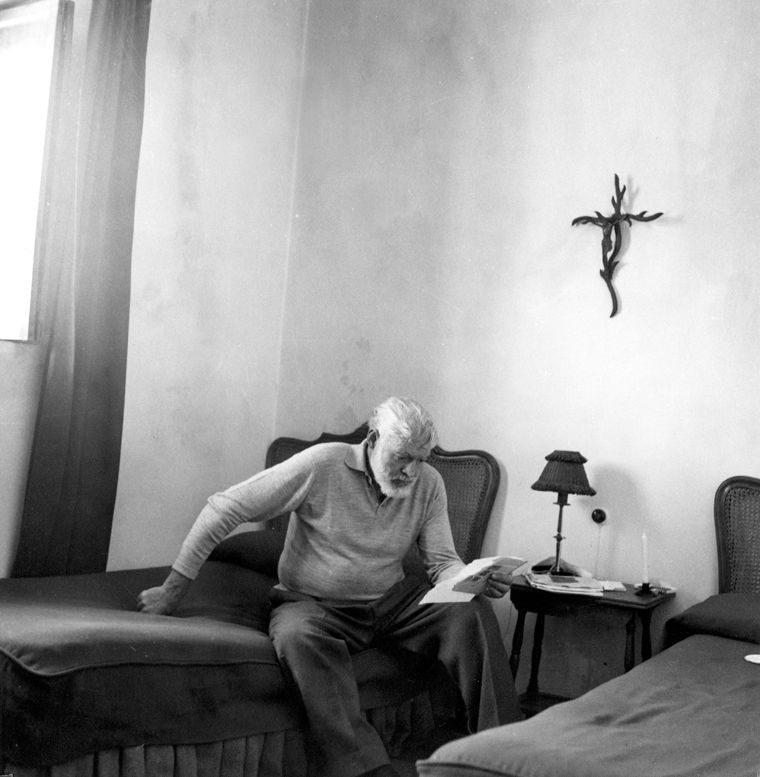
Writing is Research
Have you ever seen a film set in your hometown and just knew that the creators have never set foot there? Do you cringe every time you see a TV show for “the youths,” and it uses slang that went out of style in 1995? Or shudder when a hard sci-fi film blatantly disregards the laws of physics?
This, my friends, is the importance of research.
Unless you’re Ernest Hemingway, you’re likely not going to “write what you know” on every single project you do. If you only write characters of your own age, ethnicity, gender, or occupation (and sure, you can, if you’re as good as Hemingway), your writing will eventually start to get boring. There’s only so much you can draw from your own experience when you’re trying to portray the depth of human experience.
If you want to branch out, you’re gonna have to do your homework.
Look no further than the gold standard of animation: Disney/Pixar. The studio is well-known for the incredible amount of time and effort they spend on research for their stories.
For Up, the creative team had to study Victorian architecture in Berkeley—right down to the finishes on the chimney—before creating Karl’s home for the film.
For Finding Nemo, the team took courses in marine biology, went on field trips to aquariums, and some animators even did dives on the Great Barrier Reef.
If you’re a screenwriter writing an animation spec, this is the level of commitment you’re up against. Plan accordingly.
And novelists, if you think you’re getting off easy, I’ve got some bad news. It’s much easier to hide a lack of research in a screenplay through flashy dialogue and hanging lampshades on obvious anachronisms. In a novel, every sentence can be scrutinized, so the reader will know if you’re pulling nonsense out of your ass.
If you somehow manage to get published with a poorly-researched novel, the audience you’re writing for will drag you for filth on every forum known to man.
Just ask Dan Brown (The Da Vinci Code).
All of that said, you needn’t go as far as flying to Italy to write a cute romantic comedy, or start spelunking to write your single-location cave thriller. Doing good research means taking the time to care about the subjects you’re writing about, so you can tell their stories authentically.
What constitutes “doing good research” will vary by subject matter. It means doing more than parroting Twitter talking heads and Washington Post articles in a political drama (looking at you, “The Comey Rule”). It means at least mentioning Marsha P. Johnson or Sylvia Rivera in a movie about the Stonewall riots (looking at you, Stonewall).
It means reading, watching, and most importantly listening to the subjects you’re trying to write about.
“OK, genius, then what do I read, watch, and listen?”
You get out what you put in. If all you’re doing is watching similar movies or TV shows to the idea you’re trying to write, you’re handicapping yourself before you even get a chance to get started.
If you’re making a new cop show and all you’ve done is watch “CSI,” “Law and Order,” and “The Wire,” you’re gonna come up with another derivative, boring cop show. If you’re wanting to make a new hospital drama and only watch “Grey’s Anatomy” and “House,” you’re going to get yet another network hospital show clone.
If you want to come up with something cool and unique, you’re gonna have to go looking for it!
It’s easy to just say “read this book” or “watch this interview,” but with the amount of information available, it’s hard to know right away which sources are genuine or insightful. You’ll have to develop a keen, discerning eye, cast a wide net, and check whatever biases you have at the door. That way, you can come up with a more unique angle into an already saturated subject.
Once you really start digging into a subject, that’s where you’ll find the gems.
Instead of the 257th plucky young intern coming into her residency at some high-profile city hospital, maybe you tell the story of the one doctor within 100 miles at a rural hospital who has to save patients with duct tape and a paperclip because it’s heavily underfunded?
Instead of a cop cleaning up crime in New York for the 522nd time, maybe you’ve got a cop in the Midwest who needs to unseat the corrupt police chief if he wants to take out the white nationalist chapter terrorizing his town?
Or instead of another version of “The Office,” you do a mockumentary show about the ne'er-do-well employees at a dangerous water park?
Did you know that in the 1980’s a kid got decapitated on a waterslide in New Jersey, and the owner of the park—who was also affiliated with the Italian mob—covered it up by bribing every member of the local city council?
Neither did I! Until I did my research.
*Feature Photo: Ernest Hemingway in Spain, 1959 / Wikimedia Commons